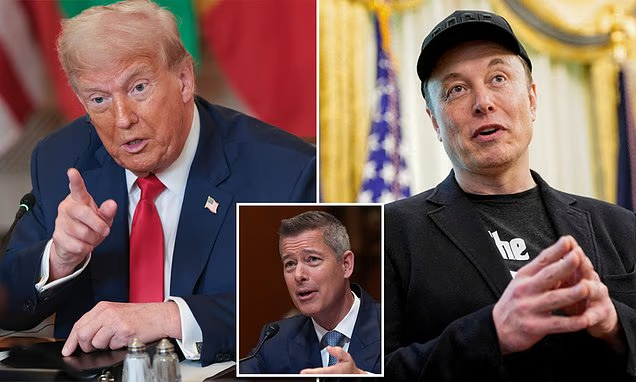President Donald Trump announced via Truth Social on Wednesday that he has named Transportation Secretary Sean Duffy to serve as NASA’s interim head. Trump praised Duffy as “a great leader for our Space Agency,” even though Duffy brings no formal experience in science or space exploration to the post. This surprise move follows the withdrawal of the previous nominee and comes as NASA faces deep funding cuts under the administration’s proposed 2026 budget.
Duffy’s Transportation Experience and Transition to Space
Sean Duffy won Senate confirmation as Transportation Secretary in January 2025 by a 77‑22 vote, drawing support from both parties despite his limited background in transport matters. In his time at Transportation, he pushed to roll back fuel economy rules and curb electric vehicle incentives.
He also handled the federal probe into the 2025 Potomac River mid‑air crash, coordinating across agencies to speed up investigations and improve safety measures. Now Duffy must shift focus from roads and rails to rockets and research, a major change of pace that will test his ability to lead a science agency without a technical resume.
Budget Battles over NASA’s Future

In early July 2025, the White House proposed a sharp 24 percent cut to NASA’s overall funding and a 47 percent drop in science programs for fiscal year 2026. Congress pushed back. On July 10 the Senate Appropriations Committee voted 15‑14 to restore NASA’s budget to $24.9 billion, saving key missions like Juno around Jupiter and OSIRIS‑APEX at the asteroid Bennu.
That bill then stalled over a separate dispute on FBI headquarters funding. Yet it shows strong bipartisan will to oppose steep agency cuts that could halt dozens of projects and force more than two thousand senior staff to leave under planned buyouts at major centers in Maryland, Texas, and Florida.
Sudden Reversal of Isaacman Nomination
Just days before his planned confirmation vote, the White House pulled back the nomination of Jared Isaacman for NASA administrator on May 31, 2025. Isaacman is known as a private astronaut and tech entrepreneur who flew two missions with SpaceX. He had cleared the Senate Commerce Committee in April with a 19‑9 vote. White House officials said they needed someone fully aligned with Trump’s “America First” goals.
Trump later told followers on Truth Social that he rescinded Isaacman’s nomination after learning of his political donations to Democrats. Isaacman called the decision a “real blow” and suggested it had more to do with politics than policy.
What This Means for NASA and U.S. Space Policy
And now Duffy takes charge at a time when NASA stands without a permanent administrator and its budget faces uncertainty. His transport background may help streamline agency operations but he will need quick support from career scientists and engineers to guide research on climate, astrophysics, and human spaceflight. Congress must still agree on final funding levels.
Any delay risks pausing missions that probe other worlds and track Earth’s changing climate. The Artemis program and Space Launch System received a boost in the July 4 “One Big Beautiful Bill,” which added $9.9 billion through 2032, yet that support may clash with cuts elsewhere.
Personal Analysis
And here is what I see: putting a non‑scientist at NASA’s helm can bring fresh management ideas but it also adds risk in a highly technical field. Duffy will need to build trust fast with agency experts and lawmakers. He must prove he can defend NASA’s budget and protect vital missions. If he succeeds, this move could speed up approvals and cut red tape. But if he fails, it may leave projects in limbo and weaken the U.S. standing in space exploration just as global rivals invest heavily.
Sources: foxnews.com

